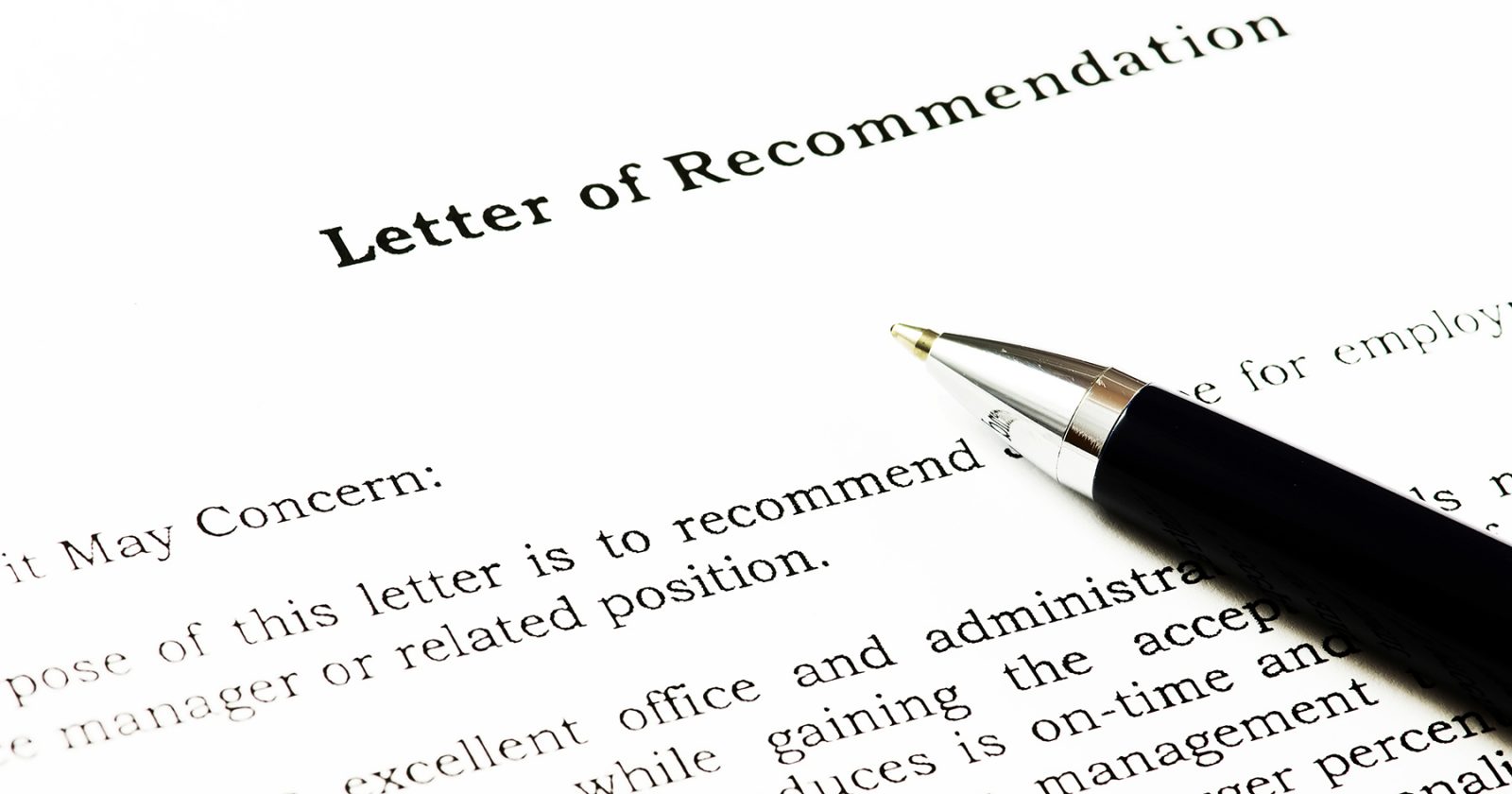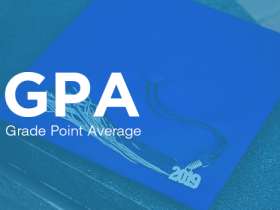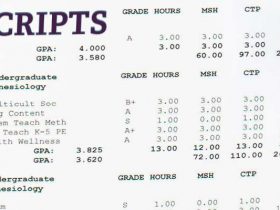
آخرین به روز رسانی در تاریخ 24 آذر 1399
توصیهنامه (Recommendation Letter یا Letter of Recommendation یا LoR) نامهای است که جهت معرفی و دریافت بازخورد نسبت به عملکرد تحصیلی، تحقیقاتی و پژوهشی، رفتار، و فعالیتهای داوطلبانه شما در دانشگاه یا محل کار(های) سابق شما مورد استفاده قرار میگیرد. برای اپلای به خیلی از دانشگاهها یا پوزیشنهای تحصیلی، کارآموزی، یا کاری، نیاز به یک تا چند رفرنس (Reference) یا توصیهکننده (Recommender) دارید که از نزدیک و به اندازهی کافی در جریان روند تحصیلی یا کاری شما بودهاند.
در این مطلب سعی کردم خلاصهای از نکات مهم دربارهی نوشتن توصیهنامه رو از زبون تعدادی از اساتید دانشگاههای برجستهی دنیا گردآوری و به بعضی از پرسشهای متداول، جواب بدم. اگه بازم راهنماهای خوبی پیدا کردم یا سؤالهای خوب دیگهای یادم اومد، این پست رو آپدیت میکنم (از قسمت بالای پست میتونین بفهمین این پست آخرین بار چه زمانی آپدیت شده).
تعداد و نوع/مرتبه/وابستگی (Affiliation) رفرنسها
تعداد رفرنسها (توصیهکنندهها) برای دانشگاههای آمریکا و کانادا معمولاً حداقل ۳ میباشد ولی در بعضی موارد ۲ تا نیز کفایت میکند و حداقل برای این دو کشور، عموما به صورت الکترونیکی و معمولا از طریق ارسال لینک یا فرم به توصیهکننده و درخواست تکمیل فرم یا ارسال توصیهنامه، انجام میشود. برای اپلای تحصیلی، توصیه میشود حداقل یکی از رفرنسها از جامعهی آکادمیک انتخاب شود و استاد دانشگاه باشد. البته بعضاً ممکن است دانشگاهی شرایط خاص خود را داشته باشد و لازم باشد ۲ نفر از ۳ رفرنس حتما آکادمیک باشند یا حتماً آدرس ایمیل کاری یا آکادمیک (و نه Gmail و …) داشته باشند. به طور مثال، اپلیکیشن دانشگاه کلمبیای آمریکا، آدرس جیمیل اصلا قبول نمیکند و از شما میخواهد از آدرس ایمیل کاری استفاده کنید. البته در بعضی موارد از جمله همین دانشگاه، اگر به دانشگاه ایمیل بزنید ممکن است برای استاد مربوطه و به آدرس جیمیل ایشان، ایمیل دستی جداگانه ارسال کنند.
در صورتی که در توضیحات مربوط به اپلیکیشن در وبسایت دانشگاه صراحتا قید نشده باشد که (یکی یا همهی) رفرنسها باید آکادمیک باشند، تقریبا هر فردی را میتوانید به عنوان رفرنس معرفی نمایید. اما باید توجه داشته باشید که اگر برای یک پوزیشن آکادمیک (مثل تحصیل) اقدام میکنید، توصیهنامهای که توسط یک استاد دانشگاه ارسال شود معمولا اعتبار بیشتری نسبت به توصیهنامههایی دارند که از طرف کارفرمای شما یا سایر دانشجویان دکتری یا پسادکتری که با آنها همکاری داشتهاید، دارند.
در حالت کلی، هرچه مرتبهی استادی که به عنوان رفرنس انتخاب میکنید بالاتر باشد (مثلا پروفسور در مقابل استادیار)، در شرایط یکسان، حرف ایشان اعتبار بیشتری خواهد داشت. اما باید توجه داشته باشید که میزان آشنایی و همکاری استاد با شما و نکات و حکایتهای عینی که میتواند دربارهی شما بنویسد هم اهمیت خیلی زیادی دارد.
چرا توصیهنامهها اهمیت دارند؟
اگرچه روایتها و برخوردهای مختلفی از اساتید دانشگاههای مختلف شنیده و دیده میشود، توصیهنامهها بعضا میتوانند خیلی مؤثر واقع شوند. مخصوصا برای جبران کمبودهای موجود در رزومه، توصیهنامهها (اگر خوانده شوند(!))، میتوانند کمککننده باشند. اما مسلما معدل، رزومه، مقالهها (اگر داشته باشید)، نمرات زبان و کارنامهی شما مواردی هستند که قبل از بررسی توصیهنامهها، مورد توجه و تمرکز قرار میگیرند.
“Does anyone read the letters at all? We do, rigorously, sometimes as carefully as we read a research paper: pen in hand, circling comments, annotating margins, noting what the letter did and didn’t say.
In fact, letters are so important, even a bad transcript can be offset by them. I know a student who got into a fine graduate program with just a 2.67 GPA. This is because his 2.67 was special: he aced hard classes and got bored in easy ones. His letters presumably said so, and illustrated this with several anecdotes. So, not every 2.67 is equal, and your student’s may be of just the right kind; but we won’t know that without your letter.”1
این رو استادها باید بخونن یا دانشجوها که ریکامندیشن میخوان؟
بعضی اساتید ممکن است از شما بخواهند خودتان یک پیشنویس (Draft) از توصیهنامه آماده کنید یا کارها و کورسهایی که با آنها داشتهاید را لیست کنید. حتی اگر از شما نخواهند، میتوانید به توصیهکنندهی خود پیشنهاد کنید که پیشنویسی از توصیهنامه یا صرفا لیستی از نکاتی راجع به همکاری شما با آنها که در توصیهنامه قابل ذکر هستند یا تمایل دارید ذکر شوند، آماده و برایشان ارسال نمایید. در این صورت، هم نکاتی که مورد نظر شماست بهتر برایشان یادآوری میگردد و احتمالا متن بهتری میتوانند بنویسند و هم زمان کمتری لازم دارند تا برای نوشتن توصیهنامهی شما صرف کنند. علاوه بر این، مطالعهی این نکات از دیدگاه اساتید برجسته، برای سایر مراحل اپلای و نوشتن SOP و ایمیل هم میتواند به شما دید بهتری بدهد.
“I tell my students to give me a list of everything about them that they think is relevant. I explicitly tell them to brag (some students are shy and may not give themselves enough credit otherwise): filtering their input is my job, not theirs, and I say so. Sometimes I do get items that are over-the-top, but no harm done. Much more often a student will remind me of something they did that I had forgotten, but was well worth remembering.
In particular, for my top research students who are currently working with me, I have no shortage of information. But for the others, or ones I haven’t worked with in a while, this helps immensely. Some item suddenly brings them alive after several years, helping me reconstruct forgotten details and provide an illustration or two.”1
نمونه یا سمپل ریکامندیشن
خیلی از بچهها برای نوشتن یا پیشنویسکردن ریکامندیشن، دنبال سمپل میگردند. نکتهای که خیلی باید توجه داشته باشید، هرچه این سمپلها دردسترستر باشند (مثلا به راحتی از اینترنت قابل دانلود باشند)، احتمال اینکه اساتید و کمیتهها هم آنها یا مشابهشان را قبلا دیده و خوانده باشند بیشتر خواهد بود و در این صورت، برای وجههی استاد شما و خودتان خیلی جالب نخواهد بود! اگر کلیدواژههایی همچون “Recommendation Letter” یا “Sample Recommendation Letter” سرچ کنید، احتمالا چند نمونه، حتی برای دانشگاههای برتر، پیدا میکنید2. این نمونهها ممکن است به شما کمک زیادی کنند، اما حتما سعی کنید به اندازهی کافی، خاص و به زبان خودتان (استادتان) بنویسید. ضمن این که اگر توصیهدهندهی شما فردی است که هیچ کلمهی انگلیسیای در وبسایت یا پروفایلهای آنلاین خود ندارد یا ایرادهای نگارشی دارد یا عموما از واژگان سادهتر انگلیسی استفاده کرده است، احتمالا پیشنویس توصیهنامهای که آماده میکنید هم نباید دایرهی لغات و گرامر خیلی پیچیدهتری داشته باشد.
این متن خیلی طولانیه؟
خودم تا به حال چندین بار پیشنویس برای توصیهنامه تهیه کردم و متنی که در پایین کمی خلاصه کردم و متنها و توصیههای دیگری رو کامل خوندم. شما هم اگه میخواین توصیهنامه(های) بهتر و مؤثرتری بنویسید، توصیه میکنم تا پایان این مطلب و همهی نقلقولهای انگلیسی رو بخونید.
نکات مربوط به نوشتن توصیهنامهها
توصیههای زیر مربوط به یکی از پروفسورهای دپارتمان علوم کامپیوتر Brown University آمریکا هست که یکی از دانشگاههای خیلی خوب در این رشته و عوض Ivy League محسوب میشود.
Be Concrete
شفاف و صریح بنویسید و از مثالهای عینی استفاده کنید. از کلیگویی و ردیفکردن قطاری از صفتهای قشنگ و رنگارنگ و بدون کانتکست و نمونهی عینی پرهیز کنید. نوشتن این که شما خیلی سختکوش و بااستعداد و درخشان بودهاید، مخصوصا اگر توصیهکنندهی شما و محل کار یا دانشگاهش برای دانشگاه مقصد و اساتید مربوطه ناشناس باشند، تقریبا اهمیتی نخواهد داشت. چرا که نمیتوانند درک کنند شما با چه جامعهای از دانشجویان (تعداد و استعداد) مقایسه شدهاید و این صفات به چه میزانی در شما برجسته هستند. درعوض، این صفات باید بیشتر بهطور ضمنی و از طریق حکایتهایی که دربارهی شما مینویسند، قابل استنباط باشند. مثلا شرایط سختی که برای انجام پروژهای وجود داشته یا موقعیتی که شما باید تصمیمی میگرفتید و انتخاب یا عملکرد شما چشمگیر یا تأثیرگذار بوده است.
“The single biggest problem with most letters is that they are filled with abstract generalities and infinitives. If we don’t know you or your institution, we can’t judge what any of these statements mean relative to our standards. Always consider the illustrative anecdote:
Due to deadline pressure, I asked him to grow a pumpkin in just one month. As you know it takes over 100 days to grow a pumpkin, but over the weekend he devised a new method to accelerate their growth. On Monday morning I arrived to find not just a pumpkin but a steaming, flavorful pie.
Anecdote about acts of raw coding are only so helpful in understanding research potential, but they’re better than nothing (see the section on Corporate Letters, below). An extra book or paper they read, and demonstrated understanding of (again, be concrete about why you believe this), goes a long way.”1
Triangulation and Credibility
“When we read a letter we’re supposedly evaluating the student, but we’re actually evaluating the letter-writer too. What I care about is not only what you think, but also what I think of what you think. If I don’t know you, I need to calibrate you. Of course, sometimes information can hurt. If you praise research that is no harder than what we assign our first-year undergraduate students, that tells us a lot about your program, but not a lot positive. I saw precisely such a letter back in about 2002; to this day, I can name the college (and the student…). Until that program becomes a whole lot stronger, I wouldn’t want to admit anyone from it.
If you’ve been holding back praise, tell us: If you haven’t written a letter this strong since 1998, and you’ve written two dozen letters in that time, it helps for us to know that. Of course, be honest. If we take you at your word and your student proves to be significantly weaker than your letter, we won’t trust your future recommendations. It also helps to know your track record. Especially if you are a professor at a lesser-known university, tell us where your past graduates have gone. Even better, tell us where they are now (maybe the lack of name-recognition for your school means the students didn’t go to well-known places initially, but if they did well and are now placed in good positions, that’s good to know). Remember to compare this student to that population.
Finally, tell us a little about your background. A brief para of bio-sketch never hurts. If you publish papers, tell us where. But keep it short: the letter is about the student, not you! Ultimately, remember two things:
– Your most valuable resource is your credibility. If you are a credible letter-writer, we will take you at your word and, if one day you tell us about a stellar student, we will do everything we can to make room for her. But credibility is one-way: hard to acquire, easy to lose.
– You can’t get a student in, but you can make a student not get in. That is, there is only so much you can say to get a student admitted, but if we come to distrust your letter, your next student is going to have a much harder time getting in. For “you”, substitute your institution also.”1
Reporting on Research
At a highly-competitive university like Brown, we want to know the student’s research potential. The best assessment of this is what they have already done. If you are their research advisor, you have a special obligation to them (and to us) in your letter:
– describe their work in your own words
– tell us what the student’s contribution was
– tell us whether it succeeded or failed
– if it’s ongoing, tell us why you think it will succeed
We rarely expect the ideas to have originated from the student, but we would like to see signs that they took ownership of the project, improved it in some way, refined the idea, and so on. Finally, put any publications in context. Students don’t always know how to do this. If you published a paper on the work, tell us about the quality of the venue. In particular, students are poor at telling different kinds of publications apart (tech report from conference poster from research paper) and may even try to hide the distinction (I’ve seen this happen). Help us understand what they really accomplished.
If you run a summer research center, you may get bombarded with letter requests from each of your students. I have seen such people write perfunctory one-paragraph letters. These hurt students, and are ultimately unethical. Someone gave you money to run that center; when you asked for it, you took on an obligation. Fulfill it, or else get out of the way. There are plenty of others who will gladly put that money to better use.
Reporting on Courses
“Naturally, your most significant contact with the student is likely to be in courses. Yet what could be a rich source of description is often the poorest: Mor Harchol-Balter reports that at CMU, they call a certain class of these “DWIC” letters (“did well in class”), which are effectively useless. Give us context. What textbook did you use? How much of it did you cover? Did the student take it earlier than usual?
Don’t just report the grade; put it in perspective. How many students got that grade or better? If your transcript isn’t nuanced (e.g., at Brown we give only letter grades with no +/- decorations), fill it in. Did they do an exceptional job at something? (Tell us what they did!) Were they biased towards some aspect of your class? (For instance, in my programming languages course, some take much better to the theoretical aspects, while others prefer the systems work. The transcript won’t reveal this, but it’s extremely valuable information for a professor trying to decide whether or not to recruit a student.)”1
Reporting on Personality
“This is tricky, but it can help a potential advisor assess how good a fit the student will be. Some advisors work best with quiet, shy students, others with boisterous ones. Be as honest as necessary. For instance, I’ve had the pleasure of working with numerous exceptional students, but a few have had more peculiar personalities than the norm. In such cases, I write a “care and feeding” section (this goes back to the bit about credibility). I have never yet known this to be held against the student.”1
(Don’t Personalize (or, How to Personalize
“Don’t waste your time personalizing the letter for each school, unless you really personalize it. I’m not impressed by your mail-merge program. Absolutely nobody cares that you don’t list Brown’s postal address at the top of the letter. Spend that extra minute or five making the letter better. Besides, invariably, you will mess up: every year we get a handful of letters stuffed in the wrong envelope. (Just because they’re good enough for Harvard doesn’t mean they’re good enough for us!). Of course, you could really personalize a letter by writing a paragraph specific to an institution. But only do this if you really have something to say. For instance, I sometimes write,
Hey folks—Eva Echidna is more dedicated than Jonas Jackaroo and every bit as smart as Walter Wallaby, both of whom are past students of mine who appear to be thriving in your program.
You could do this with LaTeX or Word macro trickery. In the days of paper letters it was easy to just do this by hand (everyone knows professors can’t afford machines that simulate hand-writing: only alumni offices have that kind of money on campus). It’s harder in these all-electronic days.
A simpler, but also important, level of personalization is to take into account the quality of the target institution. Sometimes, students apply to schools well beyond their quality, and you may not be able to talk them out of it (nor, perhaps, should you; they’re just exercising their freedom). You may consider having slightly different letters, one for each level of institution. A cheap way to achieve the same effect is to simply mark different boxes in the tables you’re asked to fill in (e.g., mark them in a higher percentile for schools where you think they belong, and a lower percentile for places where they will be overmatched). While we’re at it, here’s a great instance of customization gone wrong (the ellipses are mine, the rest is literal text):
It is my pleasure to recommend … be admitted to the PhD in Computer Science program at Brown University. I am an associate professor in the Department of Computer Science, the University of …, where I have taught for [THIS MANY] years.
Didn’t even proof-read it, eh?”1
Tell Us About Relevant Things That Didn’t Happen
“Sometimes the negative spaces also matter; a statement like:
Despite my best efforts to persuade her to work with me, Eva decided to spend her second summer working for the Rocky Raccoon Corporation, a local maker of surveillance equipment. Because of this I cannot say much about her research skills, but I’m told she did good work there. Moreover, her experience in industry convinced her she would rather be in graduate school.
can, in some contexts, tell the reader a lot.”1
Corporate Letters
“An important special case is the corporate letter: when you, the letter-writer, work in industry and have no academic affiliation. Many corporate letters (like many academic letters, but more so) tend to be vapid, clearly written in a different culture and for a different audience. Unless they actually did academic research with you, here are some suggestions for improving them.
A common mistake is to focus on teamwork. This is important even in academia, but often this is the primary focus of the letter, which makes it less valuable. Of course we care about it, but it’s secondary to their technical skills.
– Tell us if they learned something particularly quickly, mastered a complex technology, or solved a problem others were stuck on. Give us a paragraph of details.
– If you have a concrete reason to evaluate research potential, do so concretely. Otherwise, don’t bother.
– Give us a brief bio-sketch, including educational qualifications.
– Put the applicant in context, and tell us the context. It’s fine to relate it to your own student days, or to your experience hiring students. E.g.:Compared to the students I studied with at Cucumber and Melon University, and the ones I now recruit from there, I would put him in the top 10%.”1
منابع:
۱- Advice to Graduate School Recommendation Letter Writers, Prof. Shriram Krishnamurthi, Computer Science, Brown University
۲- Academic Recommendation Letters
۳- تصویر این مطلب













ارسال پاسخ